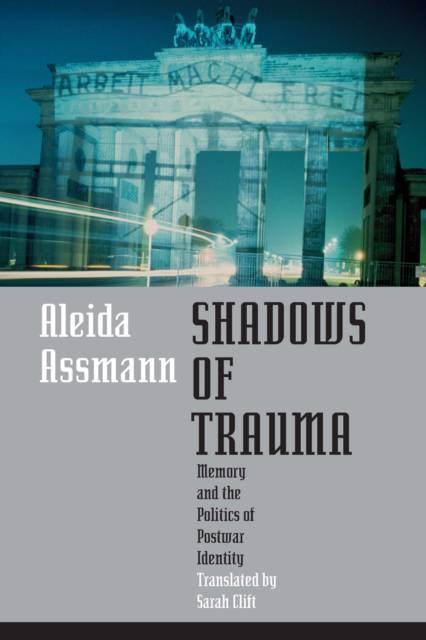
- Retrait gratuit dans votre magasin Club
- 7.000.000 titres dans notre catalogue
- Payer en toute sécurité
- Toujours un magasin près de chez vous
- Retrait gratuit dans votre magasin Club
- 7.000.0000 titres dans notre catalogue
- Payer en toute sécurité
- Toujours un magasin près de chez vous
177,45 €
+ 354 points
Format
Description
We have left the twentieth century, but this century of violence and extremes has not left us: Its shadow has become longer and blacker. Seventy years after the end of the Second World War, the memory of the Holocaust is less and less anchored in the lived experience of survivors and witnesses.
Shadows of Trauma analyzes the transformation of the past from an individual experience to a collective construction, with special attention to the tensions that arise when personal experience collides with official commemoration. In addition to surveying memory's important terms and distinctions, Assmann traces the process that emerged after the fall of the Berlin Wall, of creating a new German memory of the Holocaust. Assmann revisits the pitfalls of "false memory" and lingering forms of denial and repression, as well as the new twenty-first-centurydiscourses, such as that of German "victimhood," as well as the new memory sites for a future in which German memory will be increasingly oriented toward a European context. Combining theoretical analysis with historical case studies, the book revisits crucial debates and controversial issues out of which "memory culture" has emerged as a collective project and a work in progress.
Spécifications
Parties prenantes
- Auteur(s) :
- Traducteur(s):
- Editeur:
Contenu
- Nombre de pages :
- 312
- Langue:
- Anglais
Caractéristiques
- EAN:
- 9780823267279
- Date de parution :
- 01-12-15
- Format:
- Livre relié
- Format numérique:
- Genaaid
- Dimensions :
- 155 mm x 231 mm
- Poids :
- 566 g

Les avis
Nous publions uniquement les avis qui respectent les conditions requises. Consultez nos conditions pour les avis.






